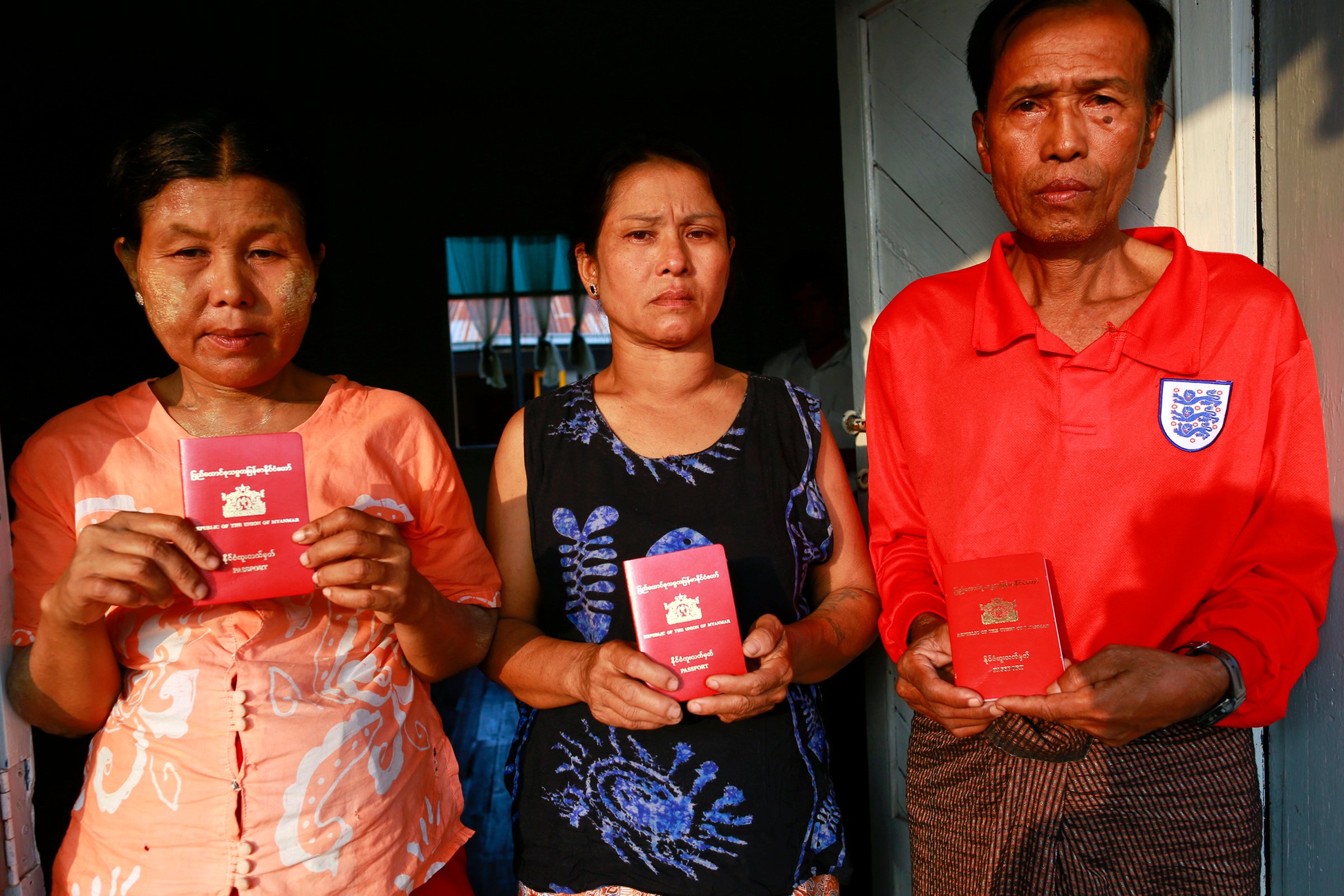
The two Burmese migrant workers accused of killing a pair of British backpackers on an idyllic Thai beach appeared in court to be formality indicted Thursday. But there are growing fears that any trial will be a sham.
The two men say they were tortured into a confession and various domestic and international human rights groups have raised concerns about their interrogation.
There are serious doubts about the evidence linking Zaw Lin and Win Zaw Htun, both 21, with the brutal slaying of David Miller, 24, and rape and murder of Hannah Witheridge, 23, on the Thai Gulf island of Koh Tao.
The victims’ bodies were discovered bludgeoned to death near rocks on Sairee Beach on Sept. 15. A fumbling investigation initially assumed Burmese migrants were to blame, then local hoodlums, then a jilted suitor of Witheridge. Eventually, police picked up Zaw Lin and Win Zaw Htun, who were both working on the island illegally at the time.
“[The police] can see a wider investigation is needed but they are not interested,” Nakhon Chompoochart, the lead lawyer on the defense team, tells TIME. “They are only focused on the accused.”
Thai Metropolitan Police Bureau deputy commissioner Pol Maj Gen Suwat Jaengyodsuk denied the suspects had been coerced when speaking to the Thai National Human Rights Commission on Wednesday. He had been summoned by the commission on four previous occasions but failed to appear.
Allegations of torture aside, observers have been appalled by procedural irregularities. Tourists were allowed to wander through the crime scene, the suspects were forced into a reconstruction that may prejudice their chances of a fair hearing, and there was a lack of a forensic experts to collect evidence. Foreign nationals were also immediately blamed for the crime because, a police spokesman claimed, “Thais wouldn’t do this.”
“The prosecution has said that this is an important case and must be dealt with quickly,” says Andy Hall, a Thailand-based migrant labor expert aiding the defense. “There’s a real fear that justice will not be served.”
Under Thai law, the 900-page police report, upon which the prosecutors will base their case, will not be disclosed to the defense team until the trial commences. Instead, the defense lawyers will be given a summary containing a list of names and addresses of witnesses as well as a cursory inventory of evidence.
According to Felicity Gerry QC, a prominent British defense lawyer specializing in high-profile sexual-assault cases, “Not to have any access until the day of trial can’t possibly be fair.”
In many other jurisdictions, including the U.S. and U.K., as soon as charges are brought the defense has access to all evidence, including witness statements, physical exhibits and expert testimony. This allows lawyers to take instructions from their clients and call their own experts to refute any testimony relied upon by the prosecution.
“Sometimes the analysis takes time,” says Gerry, citing the checking of telephone records or the disputing of forensic conclusions. “My concern would be it’s all far too rushed and unfair to the defense.”
The arrival of British police observers has not helped. A team from the U.K., including a senior homicide detective and crime scene analyst, was dispatched to Thailand early last month in order to assist in the investigation. However, they spent only two hours on Koh Tao after arriving by helicopter and did not meet with either the accused or their legal team. Their findings have still not been released.
“You’d expect the Thai police to welcome the additional assistance,” says Gerry. “My suspicion is that [the British police have] been limited regarding what they’ve been allowed to do.”
Meanwhile, Zaw Lin and Win Zaw Htun, who face a death sentence if convicted, stay cut off from their families. “They are in good spirits but really miss their parents,” says Hall, who has met with the suspects three times each week since they were arrested.
Two British families have already been devastated by the Koh Tao killings. The Thai authorities must now ensure two Burmese families don’t needlessly experience similar anguish.
More Must-Reads from TIME
- Cybersecurity Experts Are Sounding the Alarm on DOGE
- Meet the 2025 Women of the Year
- The Harsh Truth About Disability Inclusion
- Why Do More Young Adults Have Cancer?
- Colman Domingo Leads With Radical Love
- How to Get Better at Doing Things Alone
- Michelle Zauner Stares Down the Darkness
Write to Charlie Campbell at charlie.campbell@time.com